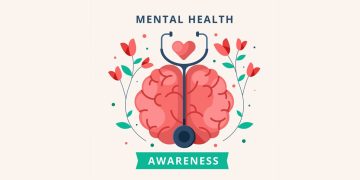Mastering Mindful Nourishment: A Holistic Approach to Healthy Eating
Healthy eating is not just about consuming the right foods; it’s also about nourishing our minds and bodies in a mindful manner. In today’s fast-paced world, it’s easy to overlook the importance of holistic nutrition. However, by incorporating mindfulness into our eating habits, we can achieve optimal health and wellness.
What is Mindful Nourishment?
Mindful nourishment is the practice of being present and fully aware of the foods we eat, how they make us feel, and how they impact our overall well-being. It involves paying attention to our hunger cues, eating slowly and savoring each bite, and being conscious of the nutrients we are putting into our bodies.
By approaching eating in a mindful way, we can better tune into our body’s needs and make choices that support our health and vitality. Mindful nourishment is about more than just counting calories or following strict diets; it’s about developing a deeper connection with food and learning to listen to our bodies.
The Benefits of Mindful Nourishment
There are numerous benefits to practicing mindful nourishment. Some of these include:
- Improved digestion
- Increased energy levels
- Weight management
- Reduced stress and anxiety
- Better sleep
- Enhanced mental clarity
By approaching eating in a mindful way, we can experience these benefits and more. Mindful nourishment can help us to build a healthier relationship with food, improve our overall well-being, and support our long-term health goals.
Tips for Mastering Mindful Nourishment
Here are some tips for incorporating mindful nourishment into your daily routine:
1. Eat slowly and savor each bite
Take the time to enjoy your meal, chewing each bite slowly and savoring the flavors. This can help you to feel more satisfied and prevent overeating.
2. Listen to your body’s hunger cues
Pay attention to your body’s signals of hunger and fullness. Eat when you are hungry and stop when you are satisfied, rather than eating out of habit or emotional cues.
3. Choose whole, nutrient-dense foods
Focus on whole foods that are rich in nutrients and support your overall health. Choose a variety of fruits, vegetables, whole grains, lean proteins, and healthy fats to nourish your body.
4. Practice gratitude
Take a moment before eating to express gratitude for the food in front of you. This can help you to appreciate the nourishment it provides and cultivate a sense of mindfulness around your meal.
5. Stay hydrated
Drink plenty of water throughout the day to stay hydrated and support your body’s functions. Dehydration can lead to fatigue, headaches, and poor digestion, so it’s important to prioritize hydration.
Common Questions About Mindful Nourishment
Here are some common questions about mindful nourishment, along with answers to help you better understand this approach to healthy eating:
Q: Is mindful nourishment the same as mindful eating?
A: Mindful nourishment encompasses mindful eating, but it also includes other aspects of holistic nutrition, such as choosing nutrient-dense foods, staying hydrated, and listening to your body’s cues. Mindful eating is a key component of mindful nourishment, but it is not the only focus.
Q: Can mindful nourishment help with weight loss?
A: Mindful nourishment can support weight loss goals by helping you to tune into your body’s hunger and fullness cues, make healthier food choices, and reduce emotional eating. By practicing mindfulness around eating, you may be better able to manage your weight and support long-term health.
Q: How can I incorporate mindful nourishment into my busy schedule?
A: You can incorporate mindful nourishment into your busy schedule by setting aside time for meals, eating without distractions, and choosing nutrient-dense foods that support your health. Even if you only have a few minutes to eat, you can still practice mindfulness by being present and fully engaged with your meal.
Conclusion
Mastering mindful nourishment is a powerful way to support your health and well-being. By incorporating mindfulness into your eating habits, you can develop a healthier relationship with food, improve your digestion, boost your energy levels, and reduce stress and anxiety. Remember to be present and fully engaged with your meals, listen to your body’s cues, and choose nutrient-dense foods that support your overall health. By practicing mindful nourishment, you can achieve optimal health and wellness for the long term.












































